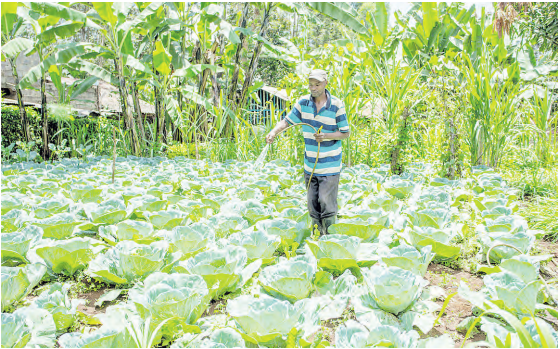

Thousands of Kirinyaga farmers have benefitted from irrigation projects to enable them undertake subsistence farming.
This has led to increased agricultural productivity while boosting food insecurity and uplifting living standards.
The county has completed more than 70 water projects while 80 others are ongoing.
It has been distributing water pipes and fittings and funding micro tunnelling for various projects to boost farmers’ resilience against climate change.
Kiamuka Irrigation Water Project in Mutira ward, Kirinyaga Central, is one of the successful projects that benefit 800 households.
Most farmers have for many years been food insecure, despite having fertile lands, due to their dependence on erratic rains.
“Before the project was implemented, we struggled to grow enough food for our families but now we can irrigate our farms and grow enough for our families and for sale,” John Maina, a resident of Kariko village, said.
Maina said the project has transformed the area as it has enabled farmers to till their farms throughout the year.
“Previously, we would have to fetch water from the river using jerricans to irrigate our farms which was time consuming and tedious.”
The project’s chairperson Peter Muthii said water availability has greatly benefited farmers since they can now cultivate even during the dry seasons.
Muthii planted tomatoes during the dry weather and is now expecting to harvest about five crates from a small part of his land, which will give him enough proceeds to sustain his children during the holidays.
“The county government has assisted us with distribution pipes, micro tunnelling and training on proper use and maintenance of irrigation systems,” Muthii said.
His neighbour, Bernard Ngirigacha, is growing cabbage in his small farm and expects to rake in about Sh50,000 worth of harvest, something that would have been impossible without irrigation water.
Lucy Nyakio, a young farmer from Kirigu-ini village, is also growing vegetables such as cabbages, kales, capsicums and spring onions for consumption and sale.
In her farm, Nyakio has created employment for several residents who tend to her farm throughout the year.
Retired civil servant Roselyn Muriithi, who is now a small-scale farmer, said she no longer has to buy vegetables from the local market as she grows them from her farm.
Muriithi intercrops coffee, assorted vegetables and livestock farming to increase her proceeds.
The water and irrigation executive James Kinyua said Kiamuka irrigation project is one of the successes of a well-coordinated plan by Governor Anne Waiguru to ensure residents are empowered.
“Such projects provide an opportunity for job creation through farming given that it is the mainstay of our county,” he said.
The county government is targeting more than 100,000 households
in its irrigation water initiative to
boost the local economy.













